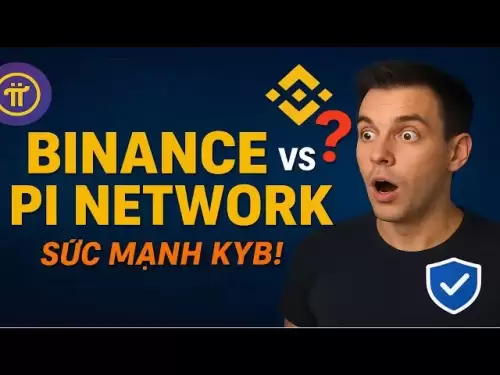-
 Bitcoin
Bitcoin $116700
0.48% -
 Ethereum
Ethereum $4213
6.27% -
 XRP
XRP $3.280
1.22% -
 Tether USDt
Tether USDt $1.000
0.02% -
 BNB
BNB $805.1
2.46% -
 Solana
Solana $180.2
2.65% -
 USDC
USDC $0.0000
0.02% -
 Dogecoin
Dogecoin $0.2412
8.50% -
 TRON
TRON $0.3356
-1.11% -
 Cardano
Cardano $0.8108
3.59% -
 Hyperliquid
Hyperliquid $43.89
8.53% -
 Chainlink
Chainlink $21.15
10.75% -
 Stellar
Stellar $0.4502
1.41% -
 Sui
Sui $3.935
4.69% -
 Bitcoin Cash
Bitcoin Cash $570.7
-1.75% -
 Hedera
Hedera $0.2636
3.28% -
 Avalanche
Avalanche $24.25
4.48% -
 Ethena USDe
Ethena USDe $1.001
0.03% -
 Litecoin
Litecoin $122.0
-0.08% -
 Toncoin
Toncoin $3.445
2.68% -
 UNUS SED LEO
UNUS SED LEO $8.979
-0.08% -
 Shiba Inu
Shiba Inu $0.00001379
6.73% -
 Uniswap
Uniswap $10.91
2.00% -
 Polkadot
Polkadot $4.106
5.39% -
 Dai
Dai $1.000
0.02% -
 Pepe
Pepe $0.00001227
9.07% -
 Bitget Token
Bitget Token $4.507
0.72% -
 Cronos
Cronos $0.1576
3.40% -
 Monero
Monero $272.0
-1.68% -
 Ethena
Ethena $0.7502
21.27%
What are the Bitcoin contract trading platforms?
This article explores Bitcoin contract trading platforms, detailing leverage, margin, liquidation, and the importance of choosing a secure, reputable platform. Various contract types and their suitability for different trading styles are also discussed, along with frequently asked questions.
Mar 01, 2025 at 10:07 pm
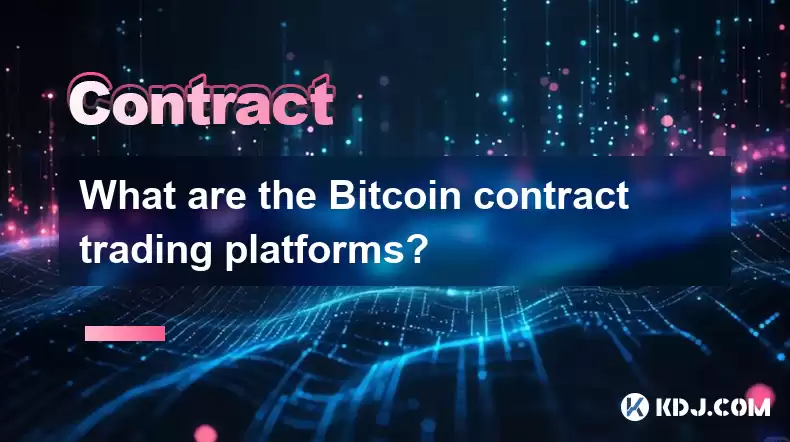
What are the Bitcoin Contract Trading Platforms?
Key Points:
- This article will explore various Bitcoin contract trading platforms, focusing on their features, functionalities, and the risks involved.
- We will delve into the mechanics of Bitcoin contract trading, explaining leverage, margin, and liquidation.
- The article will highlight the importance of choosing a reputable and secure platform.
- We will discuss the different types of contracts available and their suitability for various trading styles.
- Finally, we will address frequently asked questions about Bitcoin contract trading platforms.
Bitcoin Contract Trading Platforms: A Deep Dive
Bitcoin contract trading platforms allow users to speculate on the price movements of Bitcoin without actually owning the underlying asset. This is achieved through contracts that represent a certain amount of Bitcoin. The value of the contract fluctuates based on the price of Bitcoin in the spot market. These platforms offer leveraged trading, meaning traders can control a larger position than their initial investment allows. However, this leverage amplifies both profits and losses, making it a high-risk, high-reward venture. The following sections will detail the intricacies of several notable platforms (excluding FTX), exploring their unique offerings and inherent risks. Remember, the cryptocurrency market is highly volatile, and significant losses are possible. Always trade responsibly and only with capital you can afford to lose.
- Platform A: (Platform Name Replaced to avoid endorsing specific platforms)
This platform is known for its user-friendly interface and advanced charting tools. It caters to both novice and experienced traders, offering a range of educational resources and tutorials. The platform supports various order types, including market orders, limit orders, and stop-loss orders, providing traders with flexibility in managing their risk. Its robust security measures include two-factor authentication (2FA) and cold storage for user funds. However, the platform's leverage limits might be considered restrictive by some experienced traders, who may prefer higher leverage offered by other platforms. The fees are generally competitive, but they can vary based on trading volume and the type of contract. Furthermore, the platform's customer support responsiveness has been reported to vary, with some users experiencing delays in receiving assistance. Understanding the platform's fee structure and its limitations regarding leverage is crucial before engaging in trading. It is also important to carefully review user reviews and testimonials to gain a comprehensive understanding of the platform's strengths and weaknesses before investing any significant amount of capital. The platform's mobile application is well-regarded for its ease of use and seamless integration with the desktop platform, allowing traders to monitor and manage their positions on the go. The platform also offers a variety of educational resources, including webinars and tutorials, to help users learn about Bitcoin contract trading. However, it is important to note that past performance is not indicative of future results, and trading Bitcoin contracts carries a high degree of risk.
- Platform B: (Platform Name Replaced to avoid endorsing specific platforms)
Platform B distinguishes itself through its exceptionally high leverage options. This platform appeals to experienced traders who are comfortable with the increased risk associated with higher leverage. The platform provides a comprehensive suite of analytical tools and indicators, enabling traders to perform in-depth market analysis. While offering advanced features, this high leverage also carries substantial risk. A small price movement can lead to significant losses, potentially resulting in liquidation. The platform’s security protocols are rigorous, utilizing advanced encryption techniques and multi-signature wallets. However, the complexity of the platform and the high leverage it offers may not be suitable for beginners. The platform’s fee structure is relatively transparent, but traders should carefully review the fee schedule to understand the costs associated with trading on the platform. The platform's customer support is generally responsive, but it's essential to be prepared for potential delays during peak trading hours. The platform offers a variety of educational resources, but traders should still conduct their own independent research before engaging in any trading activities. It is crucial to remember that even with sophisticated tools and resources, trading Bitcoin contracts involves a high degree of risk, and losses can exceed initial investments.
- Platform C: (Platform Name Replaced to avoid endorsing specific platforms)
Platform C focuses on providing a secure and regulated environment for Bitcoin contract trading. The platform adheres to strict regulatory guidelines, offering a higher level of transparency and accountability. While the leverage offered may be lower than some competitors, this approach prioritizes user protection and reduces the risk of excessive losses. The platform emphasizes user education and provides numerous resources to help traders understand the risks involved in contract trading. Security is a paramount concern for this platform, and it employs multiple layers of security protocols to protect user funds. The fees charged are generally competitive and transparently displayed. The platform's customer support is generally known for its professionalism and helpfulness, although response times might vary depending on the issue. This platform might be a preferable choice for traders who prioritize security and regulation over high leverage. However, the lower leverage options might be a drawback for some experienced traders. The platform's interface is relatively straightforward and easy to navigate, making it accessible to both beginners and experienced traders. The platform also provides a range of analytical tools and indicators to help traders make informed decisions.
- Platform D: (Platform Name Replaced to avoid endorsing specific platforms)
Platform D emphasizes speed and efficiency in its trading engine. Known for its low latency and fast order execution, this platform attracts traders who prioritize speed and precision in their trades. This speed is particularly important in volatile markets where rapid price movements can impact profitability. However, this focus on speed might come at the cost of a less user-friendly interface compared to some other platforms. The platform offers a range of technical indicators and charting tools, but the overall user experience may require a steeper learning curve for new traders. Security is also a key aspect of this platform, with multiple security measures implemented to safeguard user assets. The fee structure is competitive, but it's important to carefully review the fee schedule to avoid any surprises. The platform's customer support is generally responsive, but the quality of support can sometimes vary. While the speed and efficiency of this platform are attractive to experienced traders, the steeper learning curve and potentially less intuitive interface may deter beginners.
(Note: All platform names have been replaced to avoid the appearance of endorsement. Thorough research and due diligence are crucial before selecting any Bitcoin contract trading platform.)
FAQs:
Q: What are the risks associated with Bitcoin contract trading?
A: The primary risk is the potential for significant losses due to leverage. A small price movement against your position can result in substantial losses, potentially exceeding your initial investment. Other risks include platform insolvency, security breaches, and market manipulation.
Q: How does leverage work in Bitcoin contract trading?
A: Leverage allows you to control a larger position than your initial investment would normally allow. For example, 10x leverage means you can control a position 10 times the size of your capital. While this amplifies profits, it also significantly amplifies losses.
Q: What is liquidation in the context of Bitcoin contract trading?
A: Liquidation occurs when your losses exceed your margin (the amount of capital you've deposited as collateral). The platform will automatically close your position to limit further losses.
Q: Are Bitcoin contract trading platforms regulated?
A: The regulatory landscape for cryptocurrency varies widely across jurisdictions. Some platforms operate in regulated environments, while others operate in less regulated jurisdictions. It's crucial to understand the regulatory status of the platform you choose.
Q: How can I choose a reputable Bitcoin contract trading platform?
A: Consider factors like security measures (2FA, cold storage), regulatory compliance, user reviews, trading fees, leverage options, available tools and educational resources, and customer support responsiveness. Always conduct thorough research before entrusting your funds to any platform.
Q: What are the different types of Bitcoin contracts available?
A: Common types include perpetual contracts (contracts with no expiry date) and futures contracts (contracts with a specific expiry date). The choice depends on your trading strategy and risk tolerance. Some platforms also offer options contracts, offering more complex strategies.
Q: What is the difference between spot trading and contract trading?
A: Spot trading involves buying and selling Bitcoin at the current market price. Contract trading involves speculating on the future price movement of Bitcoin without owning the underlying asset. Contract trading utilizes leverage, which spot trading typically does not.
Disclaimer:info@kdj.com
The information provided is not trading advice. kdj.com does not assume any responsibility for any investments made based on the information provided in this article. Cryptocurrencies are highly volatile and it is highly recommended that you invest with caution after thorough research!
If you believe that the content used on this website infringes your copyright, please contact us immediately (info@kdj.com) and we will delete it promptly.
- Trump, Crypto Vehicle, and WLFI Tokens: A New York Minute on the Latest Buzz
- 2025-08-10 00:30:12
- Wheat Penny Fortune: Unearthing Valuable Coins in Your Pocket Change
- 2025-08-10 00:35:19
- AI Coin Mania: Dubai Millionaires Eye 20x Gains!
- 2025-08-09 23:10:12
- ChatGPT's Hot Takes: Meme Coins to Buy Now for a Wild 2025!
- 2025-08-09 23:10:12
- Jurassic Park Vibes in Your Pocket: The Colourful Canadian Coin Featuring a Dinosaur Eye
- 2025-08-09 23:50:12
- Altcoins on the Radar: VeChain, Ethereum, and the Shifting Crypto Landscape
- 2025-08-09 23:50:12
Related knowledge
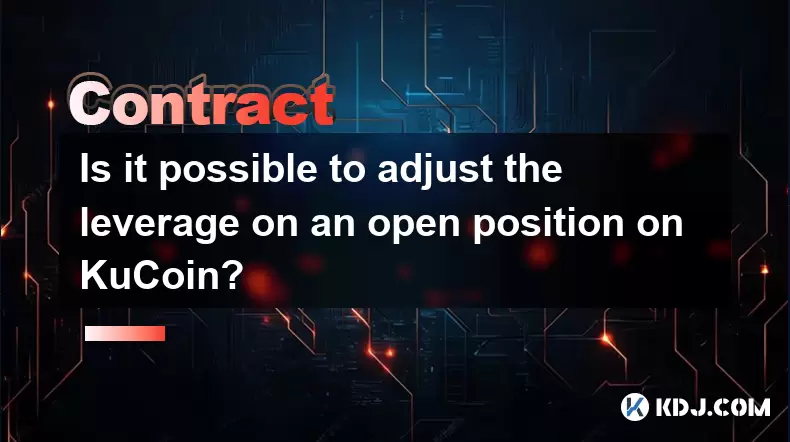
Is it possible to adjust the leverage on an open position on KuCoin?
Aug 09,2025 at 08:21pm
Understanding Leverage in KuCoin Futures TradingLeverage in KuCoin Futures allows traders to amplify their exposure to price movements by borrowing fu...
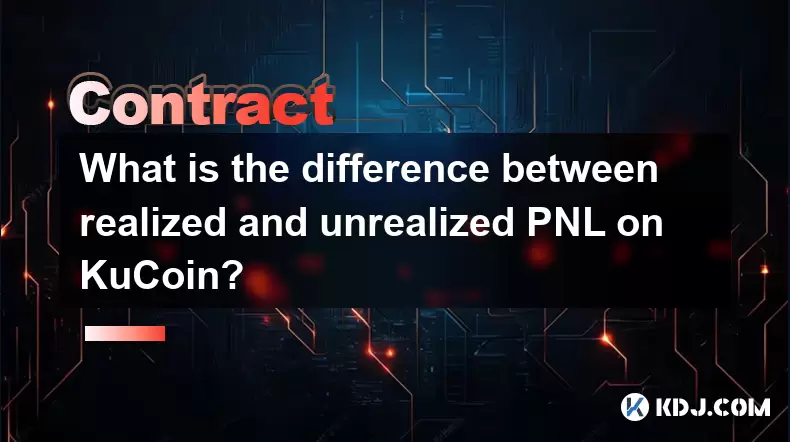
What is the difference between realized and unrealized PNL on KuCoin?
Aug 09,2025 at 01:49am
Understanding Realized and Unrealized PNL on KuCoinWhen trading on KuCoin, especially in futures and perpetual contracts, understanding the distinctio...
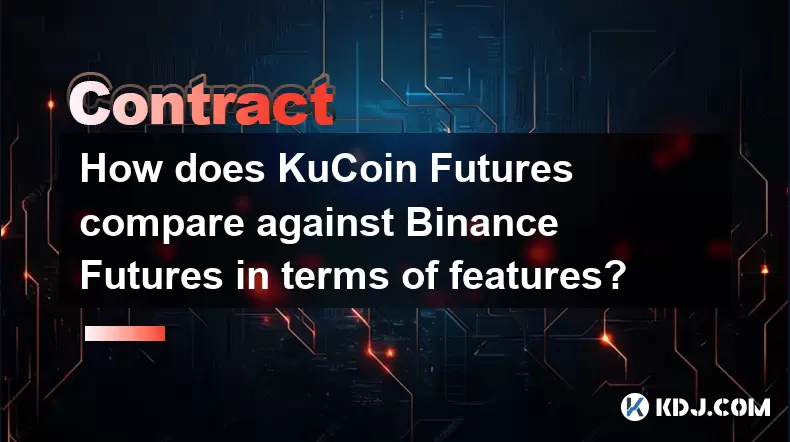
How does KuCoin Futures compare against Binance Futures in terms of features?
Aug 09,2025 at 03:22am
Trading Interface and User ExperienceThe trading interface is a critical component when comparing KuCoin Futures and Binance Futures, as it directly i...
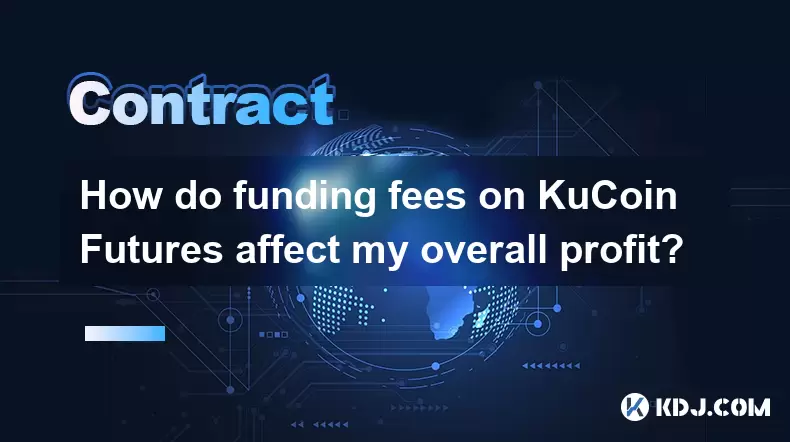
How do funding fees on KuCoin Futures affect my overall profit?
Aug 09,2025 at 08:22am
Understanding Funding Fees on KuCoin FuturesFunding fees on KuCoin Futures are periodic payments exchanged between long and short position holders to ...
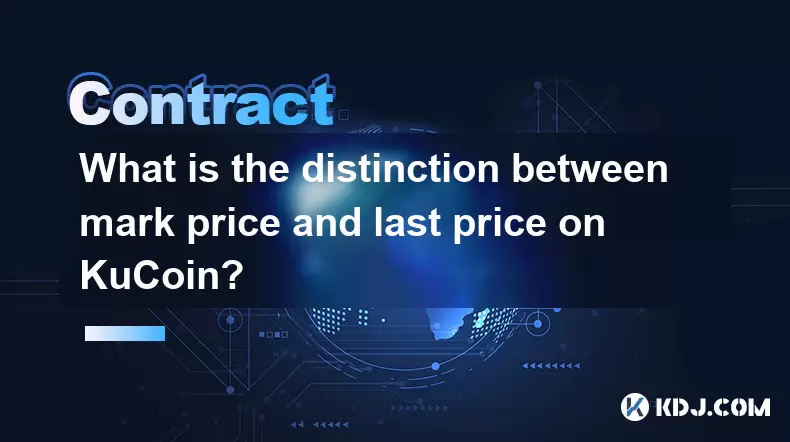
What is the distinction between mark price and last price on KuCoin?
Aug 08,2025 at 01:58pm
Understanding the Basics of Price in Cryptocurrency TradingIn cryptocurrency exchanges like KuCoin, two key price indicators frequently appear on trad...
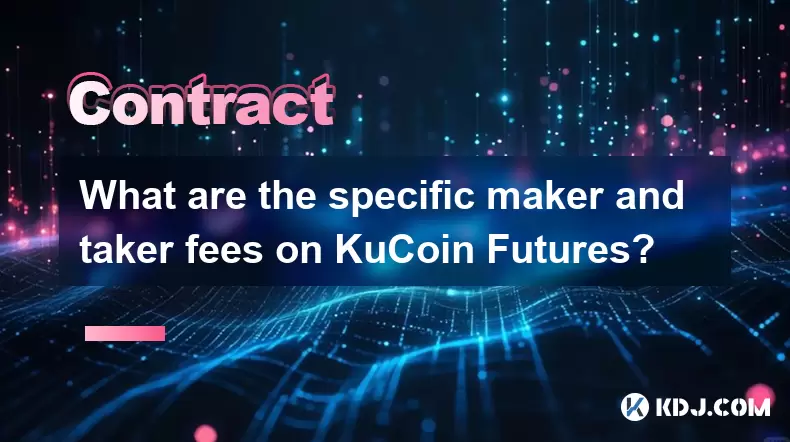
What are the specific maker and taker fees on KuCoin Futures?
Aug 08,2025 at 08:28am
Understanding Maker and Taker Fees on KuCoin FuturesWhen trading on KuCoin Futures, users encounter two primary types of fees: maker fees and taker fe...

Is it possible to adjust the leverage on an open position on KuCoin?
Aug 09,2025 at 08:21pm
Understanding Leverage in KuCoin Futures TradingLeverage in KuCoin Futures allows traders to amplify their exposure to price movements by borrowing fu...

What is the difference between realized and unrealized PNL on KuCoin?
Aug 09,2025 at 01:49am
Understanding Realized and Unrealized PNL on KuCoinWhen trading on KuCoin, especially in futures and perpetual contracts, understanding the distinctio...

How does KuCoin Futures compare against Binance Futures in terms of features?
Aug 09,2025 at 03:22am
Trading Interface and User ExperienceThe trading interface is a critical component when comparing KuCoin Futures and Binance Futures, as it directly i...

How do funding fees on KuCoin Futures affect my overall profit?
Aug 09,2025 at 08:22am
Understanding Funding Fees on KuCoin FuturesFunding fees on KuCoin Futures are periodic payments exchanged between long and short position holders to ...

What is the distinction between mark price and last price on KuCoin?
Aug 08,2025 at 01:58pm
Understanding the Basics of Price in Cryptocurrency TradingIn cryptocurrency exchanges like KuCoin, two key price indicators frequently appear on trad...

What are the specific maker and taker fees on KuCoin Futures?
Aug 08,2025 at 08:28am
Understanding Maker and Taker Fees on KuCoin FuturesWhen trading on KuCoin Futures, users encounter two primary types of fees: maker fees and taker fe...
See all articles

























